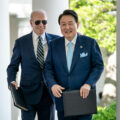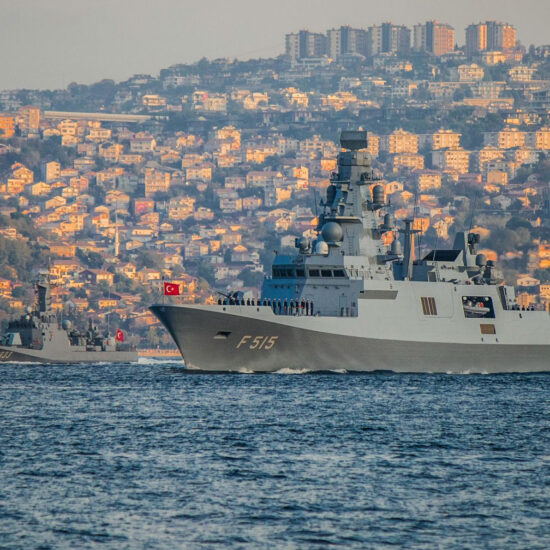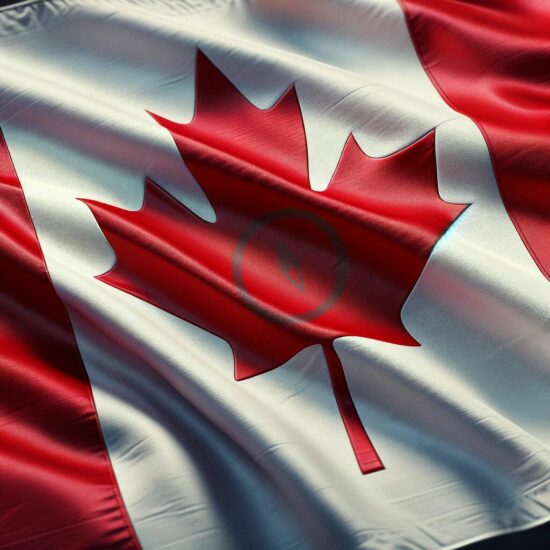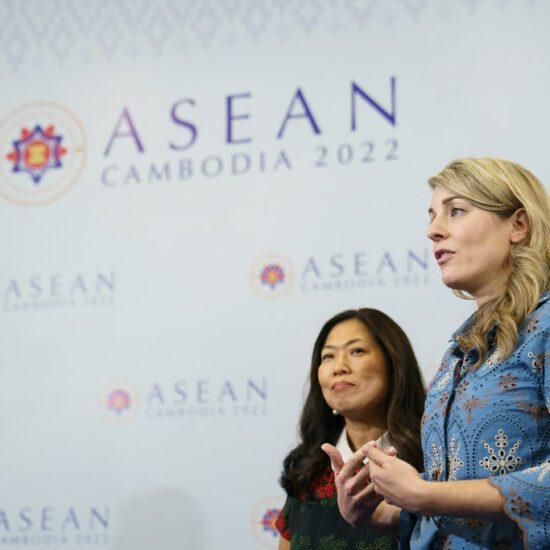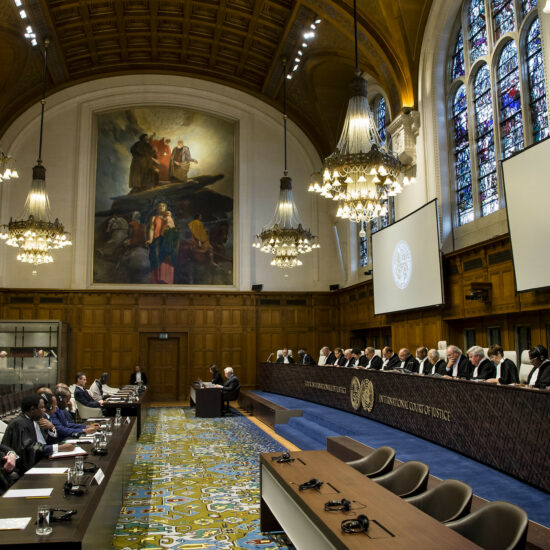
Image credit: The Gender Agency
By Christopher Mott and Arta Moeini
Imagine someone making the claim that ideological commitment to monarchism creates perpetual peace between states that share the values of King and Country. History and culture be damned, and never mind that each country has a different monarch. Such a proposition could easily be put to test and critically interrogated by historical research. It would soon become apparent to any such researcher that the claim was false and relied on selective harvesting of case studies to prove a point the claimant already believes valid as an article of faith. Such a critical eye needs to be turned, mutatis mutandis, to what is called ‘The Liberal World Order’ as well—a weltanschauung postulating that liberal societies are inherently more peaceful (if not better and superior), that they adopt values-based foreign policies to spread that righteous way of life around the world, and that they form alliances toward advancing liberal ideals or out of mere presumption of shared values and common ideological foes.
The history of republics, as a less common form of government overall, should bear a similar level of scrutiny. Yet, this is not often done. None other than one of the Founding Fathers of the United States, Alexander Hamilton, writing in Federalist Number 6, made the case for historical skepticism toward the idea of innate eternal peace among countries with democratic systems and commercial ties. Speaking of the commercial and republican nature of Athens, Venice, Holland, and others, Hamilton pointed out that the ubiquity of trade and a democratic spirit did little to quench the thirst for war and conquest in those societies. Some of the most brutal conflicts of the classical era were between nominally republican regimes such as Rome and Carthage. In the modern period, the young United States split with its mercantile mother culture of Britain while allying with the absolute monarchy of France and then refused to back Revolutionary France in the latter’s fight with Britain, disavowing grand ideological foreign policy projects in favor of Washingtonian realism that advised caution about making permanent attachments to other nations in either enmity or amity.
In fact, the young United States’ first international conflict turned out to be with republican France in a little known and undeclared naval war appropriately called the Quasi-War. This was soon followed with renewed hostilities between Britain and the U.S.—resulting in the inconclusive War of 1812. Britain would remain the top hegemonic security threat to the United States until the late 19th Century, even providing indirect support to the Confederate attempt at secession from the Union. What the fractious relationship between America and the British Empire over the first century of American founding highlights is that cultural affinity and economic ties alone do not trump geopolitical concerns. Rather, it was the rise of revisionist rival powers from elsewhere that finally brought these states closer together culminating in the U.S.- UK Special Relationship in the second half of the 20th century.
Even so, in the interwar era of the 1920s and 30s before the German resurgence, the U.S. considered its primary security challenge the Anglo-Japanese attempt to surround it and limit its reach—with Washington even contemplating a radical plan to invade Canada (then a dominion under British rule). Policy planners on both sides of the Atlantic anticipated a return to the specter of Anglo-American security competition after the First World War. A realist would argue that an adversarial relationship between the U.S. and the UK was avoided mainly because Great Britain lost its greatness and co-equal great power status to the confident America in the aftermath of the Second World War. Post-WWII Britain was severely diminished as a world power while London felt increasingly intimidated by the ascent of the Soviet Union in Europe thus welcoming its place in the American security umbrella.
Adopting a pragmatic and flexible, if fickle, approach to foreign policy based on perceptions of interest (that could change over time) is not unique to America. Third Republic France of the early Twentieth Century was one of the most progressive societies of its time, and it was firmly allied with Tsarist Russia, perhaps the most reactionary of the great powers in that period. Both nations, along with Great Britain, had different geopolitical goals and were natural rivals, but all felt equally threatened by a rising and ambitious Kaiserreich Germany and endeavored to balance against it through the Triple Entente.
Indeed, historically speaking, prudent foreign policy making is morally ambiguous and driven less by ideology than by managing external threats. The international system operates on the principle of sovereignty. Above all, states aim to maximize sovereignty and achieve monopoly of force over their territories; they thus resist the presence of a final arbiter in whatever shape or form they appear—whether that be world government or a more powerful state acting as a world hegemon. This is why, when it comes to major international incidents, the United Nations finds itself oscillating between being entirely sidelined and being a conduit for the will of the world’s major superpowers. Given the absence of supreme authority to oversee international affairs as a Hobbesian Leviathan, the natural equilibrium in the international system is anarchy. While regimes draw on norms and values (of a particular people) to claim political legitimacy and dominate the political system of their respective country, states—structurally constrained by anarchy—aim at minimizing external threats and maximizing security. Historically, it is no surprise that regimes revel in idealism (even if at times that is reduced to mere rhetorical ploy and sophistry), whereas states, in the final analysis, engage in realism and prudence. Self-preservation, understood as ensuring the political survival of the state and securing its territorial integrity, is the most basic telos of a state—hence the bare minimum target for any state before more aspirational aims (cf. thumos) that require relative power aggregation to achieve, such as desire for recognition, international standing, and glory.
In World War II, often viewed as the most ideological war of modern times, a democracy (Finland) was a co-belligerent with the Axis powers while two arguably fascist Iberian powers (Portugal and Spain) mostly upheld neutrality in the conflict, with Lisbon taking a generally pro-Allied stance compared to Spain’s pro-Axis tilt. Capitalist Western nations worked in tandem with the communist Soviet Union to overcome the Nazi threat in a grand entente before falling out over dividing the spoils in the Postwar Era. Then, in the Cold War, major powers in the communist block turned their back on international socialist solidarity and pursued non-alignment in a desire to maximize their autonomy. Yugoslavia, under general Tito, defied Soviet hegemony and refused to join the Warsaw Pact. Maoist China’s relations with USSR deteriorated and led to a deadly confrontation while Deng Xiaoping normalized PRC’s relations with America. Geography and context, it seems, are the key determining factors in geopolitics, not ideological solidarity between distant countries with divergent circumstances. Major powers often compete to maximize autonomy and achieve recognition internationally and are often willing to sacrifice ideology toward those ends.
Using the logic of liberal order, the prospect of peace in East and Southeast Asia between many illiberal and authoritarian states would seem far-fetched. Yet, there has been no kinetic military action between sovereign states of various political persuasion in that region since 1979. Of course, it would be preposterous to use the Far East example to argue that illiberal states are therefore inherently more peaceful. Rather, it is the unique geopolitical condition in East Asia that accounts for relative stability in that region. An even more impressive example is South America, which despite a medley of divergent and often unstable regimes, has not experienced a militarized attempt to change borders between local powers since the end of the Chaco War in 1935. Even if one counts the Falklands conflict of 1982, that was between one South American state, Argentina, and a European country, the U.K. And it is worth noting that both of these countries were, at the time, U.S. allies even if their political systems differed.
Advocates of liberal internationalism may point to the present U.S.-led bloc of Western liberal democracies as an exception to this general trend of states engaging in realpolitik interest aggregation, but this conveniently overlooks the fact that the Western alliance relies on the United States’ superior power and influence capability far more than it does on any presumption of America’s exceptionalism as a liberal democratic regime. It is quite conceivable that a powerful liberal rival, if one were to exist, might split the U.S. alliance network much the same way that the growing power and ambition of China broke the close relations between Moscow and Beijing during the Cold War.
Thus, the “liberal order” does not signal ideological solidarity so much as it does an imbalance of power internationally in the aftermath of World War II. The American Century that unfolded since 1945 has indeed been a golden age for U.S. international standing allowing it an almost hegemonic control over the international system culminating in the American “unipolar moment” that followed the collapse of USSR. It is this American supremacy over the international system that Western IR theorist parochially call the liberal order. If the international order is rules-based, it is because Washington has set the rules.
The emerging multipolar world is a reminder that history did not end with the fall of the Berlin Wall in 1989. In truth, what is exceptional about the last 75 years is not America or the liberal order it has forged to serve its interests, but the sheer power that the U.S. was able to amass owing to its favorable geographic position and relative distance from bloody and costly conflicts across the oceans that guard its borders. And even that exceptional power is not entirely without precedent in the course of human history when compared to the Assyrian, Persian, Roman, Mongol, and British Empires of the past. With the decline of U.S. power and the rise of the rest, especially in the non-Western world, it is no surprise that the liberal world order is appearing increasingly precarious, and the international system is shifting toward multipolarity.
Basing alliances on ideology rather than state interest blinds strategists to the realities of great power competition and morally neutral (minimal or maximal) considerations of interest that underlie the decision-making of “liberal” and “illiberal” states alike. Put simply, making geopolitical decisions prudently requires statesmen to balance their state’s interest against its holistic power capability (including its force projection and military prowess but also its economic strength and diplomatic leverages). Constructing an alliance on the presumption of shared values also risks creating an environment where the ideological differences between states are exaggerated in order to sabotage diplomacy with ideological adversaries even when strategic interests dictate otherwise. This is evident in the West’s dealings with countries such as Iran, North Korea, and Russia, which are often framed not as geopolitical menaces but as heinous existential threats, ignoring their marginal power status.
If North Atlantic countries are serious about maintaining an alliance network that is genuinely beneficial to them, it would be wise for these nations to see such arrangements as they are—aggregations of interests to effect desired geopolitical outcomes—rather than an idealistic and utopian crusade for the soul of the world or as a means to advance moral universalism and impose the values of one state or group upon others. To recognize the historical and conditional forces that enable nations to band together with clear-eyed realism and to fully account for the shared interests among them allow the participants to better justify and uphold the alliance.
History is a compendium of transience. After all, nothing real and concrete is ever perfect, absolute, or permanent. The inevitability of decline and impermanence that defines life per se has an especial bearing on international affairs. It entails thinking of geopolitics through the lens of tragic realism and abandoning the idealistic attempt to ground geopolitics in notions of exceptionalism, moral universalism, or missionary zeal. The impossibility of absoluteness in the real world means that sensible statesmen could dispose of the idea of the international system as a zero-sum Manichean prize to be won for all time.
As the primordial realist Thucydides observed millennia ago, fear, interest, and honor are the three central drivers of man, with hubris the source of his eventual downfall. As states are composed of men, they too anchor their behavior on these three motivators as they navigate the anarchic waters of international system, where the most powerful states often drown not by other competitors but by hubris and overreach all their own. The key lesson here is that a state that overextends itself out of over-confidence in its own beliefs and judgment, moral narcissism, and a disregard for the limitations of its own power eventually turns millenarian and self-destructs missing various opportunities for diplomatic engagement and rapprochement and risking unnecessary escalation with strategic rivals. It would be tragic indeed if the North Atlantic bloc follows in this Manichean path, compelling allied nations to filter their grand strategy through liberal ideals and sacrifice their national interests at the altar of its self-righteousness.
Dr. Christopher Mott is a Research Fellow at the Institute for Peace & Diplomacy.
Dr. Arta Moeini is Research Director at the Institute for Peace & Diplomacy.

